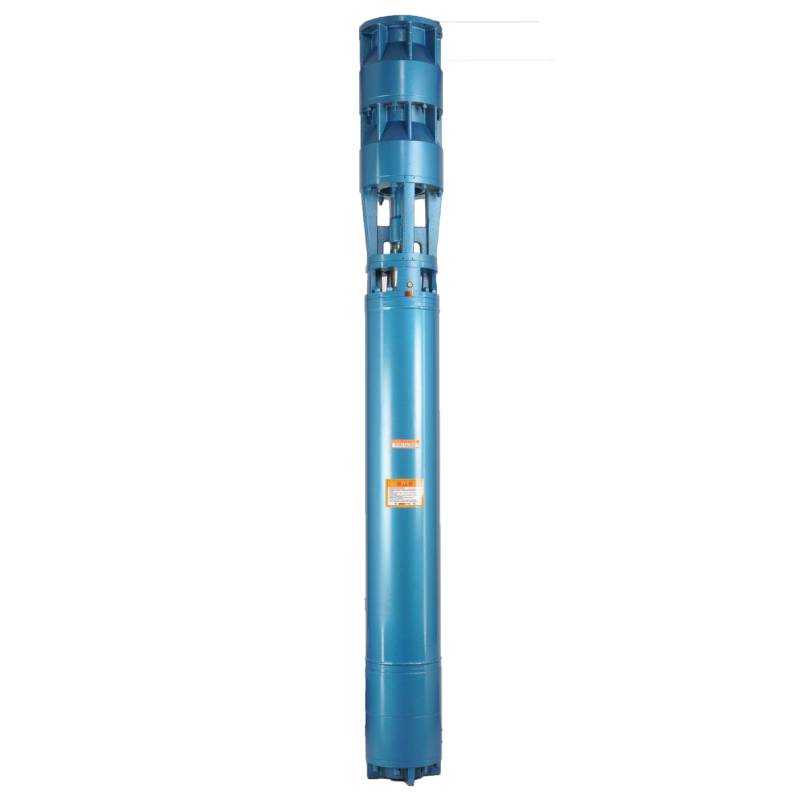Dec . 09, 2024 17:07 Back to list
Efficient Submersible Pumps for Modern Agricultural Irrigation Solutions
Submersible Agricultural Irrigation Pumps Revolutionizing Water Management for Farmers
In the face of increasing global population and climate variability, effective agricultural practices have become more crucial than ever. One of the innovations that have significantly transformed water management in farming is the submersible agricultural irrigation pump. This device not only optimizes water usage but also enhances the efficiency and sustainability of irrigation systems.
What is a Submersible Agricultural Irrigation Pump?
A submersible agricultural irrigation pump is a type of pump designed to operate while submerged in water. These pumps are generally used to extract groundwater from wells, rivers, or reservoirs to irrigate agricultural lands. Unlike traditional pumps that are placed above ground, submersible pumps are inserted deep into the water source, minimizing the risk of damage from environmental elements and providing more reliable performance.
Key Features and Advantages
1. High Efficiency Submersible pumps are known for their high efficiency. They can move large volumes of water quickly, which is essential for agricultural operations that require significant water amounts within a limited time frame.
2. Reduced Energy Consumption These pumps tend to use less power compared to surface pumps. This energy efficiency is mainly due to their design, which allows them to push water to the surface without needing to draw it up against gravity.
3. Durability Submersible pumps are built to withstand harsh conditions. Their design typically includes corrosion-resistant materials that prolong their lifespan, especially when submerged in chemically treated water or saline environments.
4. Space Saving As these pumps are located underwater, they occupy minimal surface space, allowing more room for farming equipment and activities on the land.
5. Noise Reduction Submersible pumps operate quietly compared to surface pumps, providing a more peaceful working environment, which can be particularly beneficial in residential farming communities.
Applications in Agriculture
submersible agricultural irrigation pump

Submersible agricultural irrigation pumps are versatile and can be used for various agricultural applications, including
- Irrigation The primary use of these pumps is to supply water for crop irrigation, crucial during dry seasons or in regions with limited rainfall. - Livestock Water Supply Submersible pumps ensure a consistent and reliable source of water for livestock, leading to healthier animals and increased productivity.
- Draining Waterlogged Fields In regions prone to flooding, these pumps can be employed to drain excess water, preventing crop damage and soil erosion.
- Aquaculture Farmers looking to maintain consistent water levels in fish farms can also utilize submersible pumps.
Environmental Impact
Utilizing submersible pumps can lead to more sustainable water management practices. By ensuring that water is applied more efficiently to crops, farmers can decrease wastage and minimize the volume of water drawn from aquifers and natural bodies of water. This is particularly important in areas facing water scarcity.
Moreover, by employing smart irrigation systems that integrate submersible pumps with soil moisture sensors, farmers can optimize their irrigation schedules, applying water only when necessary and thereby conserving resources.
Conclusion
As the agricultural sector continues to evolve in response to climate challenges and technological advancements, submersible agricultural irrigation pumps play an integral role in promoting efficient water usage. They not only enhance crop yields but also ensure that water resources are managed sustainably. Investing in high-quality submersible pumps can lead to better agricultural outcomes, improving both the economy of farming operations and contributing positively to the environment.
Farmers worldwide are recognizing the importance of this technology, embracing submersible pumps as part of their irrigation systems. In doing so, they are not only securing their livelihoods but also contributing to a more sustainable future for agriculture and water management globally.
-
Submersible Water Pump: The Efficient 'Power Pioneer' of the Underwater World
NewsJul.01,2025
-
Submersible Pond Pump: The Hidden Guardian of Water Landscape Ecology
NewsJul.01,2025
-
Stainless Well Pump: A Reliable and Durable Pumping Main Force
NewsJul.01,2025
-
Stainless Steel Submersible Pump: An Efficient and Versatile Tool for Underwater Operations
NewsJul.01,2025
-
Deep Well Submersible Pump: An Efficient 'Sucker' of Groundwater Sources
NewsJul.01,2025
-
Deep Water Well Pump: An Efficient 'Sucker' of Groundwater Sources
NewsJul.01,2025
-
 Submersible Water Pump: The Efficient 'Power Pioneer' of the Underwater WorldIn the field of hydraulic equipment, the Submersible Water Pump has become the core equipment for underwater operations and water resource transportation due to its unique design and excellent performance.Detail
Submersible Water Pump: The Efficient 'Power Pioneer' of the Underwater WorldIn the field of hydraulic equipment, the Submersible Water Pump has become the core equipment for underwater operations and water resource transportation due to its unique design and excellent performance.Detail -
 Submersible Pond Pump: The Hidden Guardian of Water Landscape EcologyIn courtyard landscapes, ecological ponds, and even small-scale water conservancy projects, there is a silent yet indispensable equipment - the Submersible Pond Pump.Detail
Submersible Pond Pump: The Hidden Guardian of Water Landscape EcologyIn courtyard landscapes, ecological ponds, and even small-scale water conservancy projects, there is a silent yet indispensable equipment - the Submersible Pond Pump.Detail -
 Stainless Well Pump: A Reliable and Durable Pumping Main ForceIn the field of water resource transportation, Stainless Well Pump has become the core equipment for various pumping scenarios with its excellent performance and reliable quality.Detail
Stainless Well Pump: A Reliable and Durable Pumping Main ForceIn the field of water resource transportation, Stainless Well Pump has become the core equipment for various pumping scenarios with its excellent performance and reliable quality.Detail
